Tell No Tales

Brief Synopsis
Cast & Crew
Leslie Fenton
Melvyn Douglas
Louise Platt
Gene Lockhart
Douglas Dumbrille
Florence George
Film Details
Technical Specs

Synopsis
At a party celebrating the 75th anniversary of The Evening Guardian , crusading editor Michael Cassidy is notified by the newspaper's owner, Matt Cooper, that the paper will cease publication immediately. Enraged, Michael goes to Cooper's office and accuses him of killing the Guardian so that Cooper's other paper, the scandalmongering Evening Record , can succeed. As proof of Cooper's unscrupulousness, Michael cites the sensational headlines concerning Ellen Frazier, a schoolteacher who came forward as the only eyewitness to a brutal kidnapping, but who is now being hounded mercilessly by the press. After Cooper refuses to rescind his order, Michael goes to his favorite bar, where owner Mick gives him a hundred dollar bill, which turns out to be part of the ransom in the kidnapping case. Mick received the bill from a jeweler, Charlie Daggett, and so Michael goes to Cooper to ask for help tracking the kidnappers. Cooper states that Michael can only publish the story in the Record , not the Guardian , and Michael storms out. He then goes to the school where Ellen teaches, as only she can identify the criminals. By pretending to be a lawyer, Michael spirits Ellen away from the school, where she was being held a virtual prisoner by overprotective police. She is dismayed to learn that Michael is a reporter, but he convinces her to help him and they proceed to Daggett's home. There, Michael finds out that Daggett got the bill from Dr. Lovelake's wife Lydia. While Michael's questions are disrupting the Daggett household, Ellen disappears and Michael goes on to the Lovelake home, where he learns that Dr. Lovelake received the bill from a black prizefighter, Jim Alley. Michael leaves and is surprised to see Ellen, who pretends that he is her husband in order to avoid a suspicious policeman. Michael sends her to the Guardian building to stay with his coworker, Davie Bryant, but she is kidnapped after Micheal leaves for Alley's club. At the club, Michael is shocked to find that Alley is dead, and his grieving wife Ruby explains that she got the bill from a male friend of singer Lorna Travers, for whom she is a maid. Michael finds Lorna, learns that Cooper is her suitor and, after discovering that Ellen never made it to see Davie, goes to Cooper's home. Michael informs Cooper that he knows Cooper had the bill, and Cooper admits he got it at Arno's gambling house. Michael goes to the gambling house, where Arno denies any involvement with the money. Arno sends Michael with his hoods, Alex and Kammy, to see gangsters Joe Neves and Frankie Lewis. After Michael is gone, Arno despairingly orders his brother Phil to leave, because, as the club's cashier, Phil must have been laundering the ransom money for the kidnappers. Phil maintains that he was not part of the actual kidnapping, but Arno, upset that he has protected Phil by sending his friend Michael to be murdered by Neves and Lewis, sends him away. After Arno's men throw Michael in their truck, he finds Ellen and Phil, who wishes to atone by helping them. The trio jumps from the truck and, after fighting with Alex and Kammy, succeed in capturing Neves and Lewis, although Phil is killed in the struggle. Michael and Ellen join Davie and print the story on the kidnappers in the last issue of the paper. The fantastic response to the story then prompts Cooper to revive the Guardian .

Director
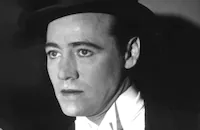
Leslie Fenton
Cast

Melvyn Douglas
Louise Platt

Gene Lockhart

Douglas Dumbrille
Florence George

Halliwell Hobbes
Zeffie Tilbury
Harlan Briggs

Sara Haden
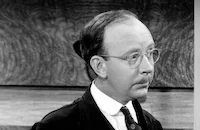
Hobart Cavanaugh
Oscar O'shea
Theresa Harris
Jean Fenwick
Esther Dale

Joseph Crehan
Tom Collins

Addison Richards
Gladys Blake
Ernest Whitman
Mary Gordon
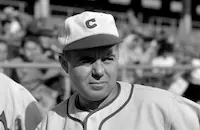
Ray Walker
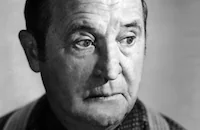
Frank Orth
Roger Imhof
Claire Dubrey
Chester Clute
Renie Riano
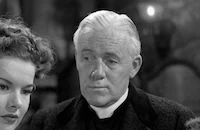
Charles D. Brown
Norman Willis
Anthony Warde

Ian Wolfe
George Noisom

E. Alyn Warren
Pat Flaherty
Fred Kelsey

Lee Phelps
Monte Vandergrift
James C. Morton
Jack Daley
Hilda Haywood

Bess Flowers
Harry Depp

James Flavin
Gertrude Sutton
Harry Tyler

Brandon Hurst
Everett Brown

Mantan Moreland
Mdme. Sul-te-wan
Florence O'brien
Ruby Elsy
Thaddeus Jones
Ben Carter
Phil Tead
James G. Blaine
Gladden James
Nick Copeland
George Magrill
Ward Wing
John Dilson
Claire Rochelle
Ben Taggart
John Marlowe
Heinie Conklin
Billy Engle
Rosalie Lincoln
Joseph E. Bernard
Crew
Tom Andre
Dr. William Axt
Peter Ballbusch
Jerry Bresler
Daniel B. Cathcart
Edward Chodorov
Cedric Gibbons
W. Donn Hayes
Lionel Houser
Pauline London
Joseph Ruttenberg
Douglas Shearer
Alfred Taylor
Dolly Tree
Edwin B. Willis

Film Details
Technical Specs

Articles
Tell No Tales
In one of five pictures he made in 1939 (including Ninotchka opposite Garbo), Douglas plays the editor of a big-city newspaper who comes into possession of a marked hundred-dollar bill used as part of a ransom payment. He methodically follows the money trail to crack the kidnapping case and save his ailing paper in the bargain. Beyond the actual solving of the mystery, the odyssey-like plot holds major interest through the glimpses it offers into the lives of the people who unwittingly handled the bill before passing it on. The investigation leads Douglas to a wedding, backstage at a police benefit, into the home of a fashionable elderly physician with an unfaithful young trophy wife, and in the most compelling of the scenes, a seedy nightclub used for the wake of a prizefighter who paid his doctor bill with the C-note before he died.
The cast includes performers with less-than-glamorous names that may not be familiar--Gene Lockhart, Douglas Dumbrille, Halliwell Hobbes, Sara Haden, Hobart Cavanaugh--but faces that any classic movie fan will recognize. Among them, too, is Theresa Harris, one of Hollywood's fine African-American actresses so often confined to maid roles. As Ruby, the prizefighter's widow, she reveals herself to be a maid by trade, but her appearance here, brief as it is, gives her far more to work with than the stereotype usually allowed.
Douglas' leading lady may also be a familiar face. Louise Platt is best known as the pregnant army wife in one of the films that does make the list of the year's best, John Ford's Stagecoach (1939). Platt made her last feature film in 1942, returning to the stage for a time and resurfacing on television a decade later, where she appeared occasionally until 1963, forty years before her death.
Although some reviewers today find the glossy MGM style to be out-of-synch with the crackling dialogue by Lionel Houser, most critics, then and now, praised the work of Leslie Fenton, who made his feature film directing debut here after helming a handful of shorts. English-born Fenton (1902-1978) was brought to the U.S. as a child and in his late teens went to Hollywood to break into the movies. He appeared in such films as What Price Glory (1926), The Public Enemy (1931), and Boys Town (1938), his final acting job. His directing career was brief and included the Hitler-youth-in-America tale Tomorrow, the World! (1944) with Fredric March and two Alan Ladd pictures, Saigon (1948) and Whispering Smith (1948). He retired from the industry in 1951.
Tell No Tales is also notable for its cinematographer, Joseph Ruttenberg, a multiple Oscar-winner for The Great Waltz (1938), Mrs. Miniver (1942), Somebody Up There Likes Me (1956), and Gigi (1958), in addition to six other nominations. His career began in 1917 and ended with the Elvis Presley movie Speedway (1968), after which he retired. Along the way, he also shot The Philadelphia Story (1940), Woman of the Year (1942), and Gaslight (1944).
The working title of the film was "A Hundred to One."
Director: Leslie Fenton
Producer: Edward Chodorov
Screenplay: Lionel Houser, based on a story by Pauline London and Alfred Taylor
Cinematography: Joseph Ruttenberg
Editing: W. Donn Hayes
Art Direction: Cedric Gibbons
Original Music: William Axt
Cast: Melvyn Douglas (Michael Cassidy), Louise Platt (Ellen Frazier), Gene Lockhart (Arno), Douglas Dumbrille (Matt Cooper), Florence George (Lorna Travers), Theresa Harris (Ruby)
By Rob Nixon

Tell No Tales
Louise Platt, 1915-2003
She was born on August 3, 1915 in Stanford, Connecticut. Her father was a Navy doctor who relocated to Annapolis, Maryland when she was a toddler. An early interest in school dramatics eventually led her to theater as a profession, and she made her Broadway debut in 1936 in a Philip Barry play, Spring Dance.
Platt made the move to Hollywood two years later, and although her film career was short (1938-1942), her keen intelligence in a variety of parts left a very pleasant impression on the silver screen. She was an effective romantic lead opposite Henry Fonda in Henry Hathaway's Spawn of the North (1938); held her own in a star-studded cast that included John Wayne, Thomas Mitchell and Claire Trevor, in John Ford's brilliant Stagecoach (1939); displayed a deft comic touch alongside Melvyn Douglas in Leslie Fenton's minor mystery gem Tell No Tales (1939); led a battleship into war (really) in Richard Wallace's cultish adventure yarn Captain Caution (1940); and showed some striking allure as a femme fatale in Jack Hively's noirish thriller Street of Chance (1942).
Despite her uniformly excellent performances in these films, Platt returned to Broadway, where her star shone brightly in the '40s when she landed the leads in such plays as Johnny Belinda and Anne of a Thousand Days. Platt would make some guest appearances on a few television shows in the '50s, including Alfred Hitchcock Presents, The Naked City, and a regular role in the popular soap opera The Guiding Light, before returning to the stage for the remainder of her career. She is survived by two daughters and several grandchildren.
by Michael T. Toole
Louise Platt, 1915-2003
Quotes
Trivia
Notes
The working title of this film was A Hundred to One. In onscreen credits, Hobart Cavanaugh's name was misspelled as "Cavanagh." According to the Screen Achievements Bulletin, Pauline London and Alfred Taylor's story, on which the picture was based, was unpublished. The film marked former character actor Leslie Fenton's debut as a director. According to Hollywood Reporter news items and production charts, H. B. Warner, Marjorie Main, Florence George and Inez Courtney were to be in the film. Their participation in the final film has not been confirmed, however.















